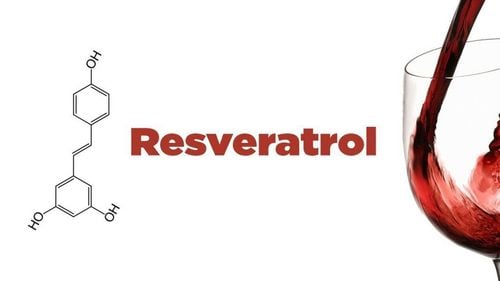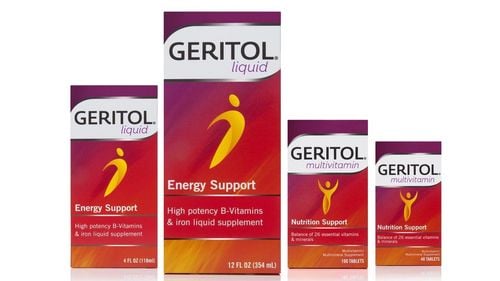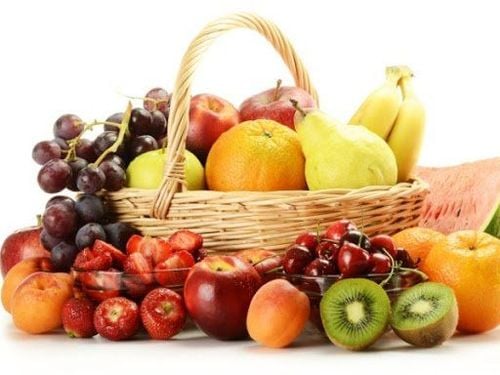Tomatoes are a nutritious food, containing up to 95% water and can support weight loss. However, consuming too many tomatoes can lead to digestive, kidney, urinary and other health problems.
1. Nutritional composition of tomatoes
In 100 grams of tomatoes, the following nutritional components can be found:
Calories: 18
Water: 95%
Protein: 0.9 grams
Carbs: 3.9 grams
Sugar: 2.6 grams
Fiber: 1.2 grams
Fat: 0.2 grams
Carbs comprise 4% of raw tomatoes, with less than 5 grams of carbs for an average specimen (123 grams).
Simple sugars such as glucose and fructose, account for nearly 70% of the carb content.
As you can see, tomatoes contain small amounts of vitamins and minerals, including calcium, choline, B-complex vitamins, iron, phosphorus, and zinc. Each cup of tomatoes also contains nutrients such as lutein and zeaxanthin. According to an August 2018 study in the Journal of Food Science and Technology, tomatoes are rich in phenolic compounds, carotenoids such as lycopene, and other beneficial bioactive nutrients.
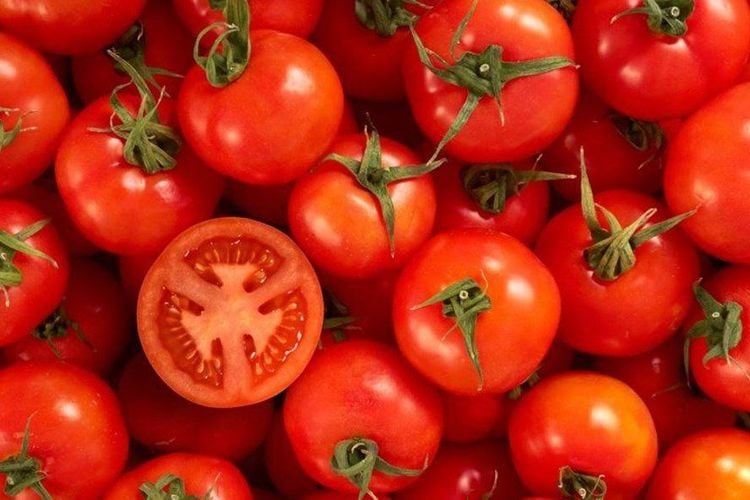
2. Benefits of tomatoes
With its wonderful uses, tomatoes are added to many dishes such as pasta sauce, ketchup, soups and curries, salads, and cocktails. A widely known benefit of tomatoes is that they protect the heart. Because of their high lycopene content, tomatoes can help lower blood pressure and blood cholesterol levels. You will thus lower your risk of atherosclerosis. As a result, you will reduce the risk of atherosclerosis. In addition, consuming tomatoes can reduce the risk of other health problems such as high cholesterol, obesity, and cancer. A small study in January 2017 in the Asia-Pacific Journal of Clinical Nutrition showed that drinking tomato juice regularly can help improve sperm motility in men, thereby supporting the treatment of infertility.
According to a study from the University of Montreal, a diet rich in tomato products can help reduce the risk of pancreatic cancer. Researchers found that lycopene, found in tomatoes, reduced the risk of pancreatic cancer by 31 percent in men with the highest and lowest intakes of carotenoids.
Tomatoes contain all three powerful antioxidants: beta-carotene (which has vitamin A activity in the body), vitamin E, and vitamin C. In addition, tomatoes are rich in potassium, a mineral that most of us are deficient in. Meanwhile, a cup of tomato juice contains 534 milligrams of potassium, and 1/2 cup of tomato sauce has 454 milligrams of potassium.
According to a study from Ohio State University, when tomatoes are eaten with healthy fats like avocado or olive oil, the body's ability to absorb the carotenoid phytochemicals in tomatoes increases by 2 to 15 times. In addition, tomatoes also bring other health benefits such as: increasing lycopene levels in breast milk.
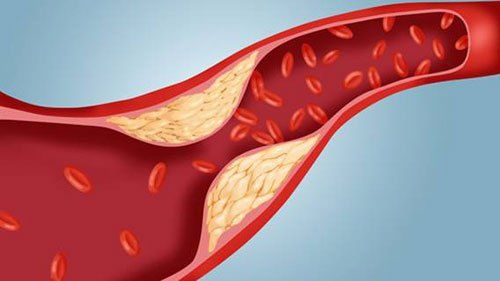
3. Is it good to eat a lot of tomatoes every day?
In general, tomatoes are safe. However, like any other food, tomatoes also have harmful effects if not used properly. Regular and excessive consumption of tomatoes can affect your health. For example, tomatoes are one of the leading causes of migraines. In fact, when you eat too many tomatoes, you may experience symptoms of acid reflux. Tomatoes contain a large amount of malic acid and citric acid, which will trigger gastroesophageal reflux disease (GERD). In addition, eating too many tomatoes can also cause other gastrointestinal problems such as irritable bowel syndrome (IBS). Some symptoms that IBS patients often experience are: bloating, diarrhea, etc.
Tomatoes contain lycopene - a carotenoid. When you eat too many tomatoes, it can lead to a large amount of lycopene accumulating in the blood. Although lycopene is not harmful, it will lead to an orange discoloration of the skin. This condition may disappear on its own in a short time. Some people may have an intolerance or allergy to tomatoes. The tomato plant has a variety of compounds that your body can react to, including b-fructofuranosidase, profilin, superoxide dismutase, pectinesterase, polygalacturonase, and the lipid transfer proteins cyclophilin, lyc-e-2, and lyc-e-3. These compounds can cause allergies.
When eat with certain acidic foods or caffeinated drinks like coffee and tea, it can irritate the bladder. These foods can increase the risk of urinary problems like incontinence.

In addition, tomatoes contain toxic glycoalkaloids, especially green tomatoes that contain glycoalkaloids such as solanine, a-tomatine, and dehydrotomatin. Glycoalkaloids can cause digestive disorders and abdominal pain. This substance is also suspected of aggravating inflammation. This means that consuming too many tomatoes can aggravate chronic pain and painful inflammatory conditions such as arthritis.
Finally, tomatoes may not bring benefits to patients with kidney disease. Although the nutrients in tomatoes will help prevent kidney disease, eating tomatoes may not be suitable for people who already have kidney problems. Because tomatoes contain oxalate and calcium. Both of these substances are the cause of kidney stones. Therefore, if you are suffering from kidney and digestive problems, you should limit the amount of tomatoes in your daily diet.
Please dial HOTLINE for more information or register for an appointment HERE. Download MyVinmec app to make appointments faster and to manage your bookings easily.
Reference sources: webmd.com, livestrong.com




